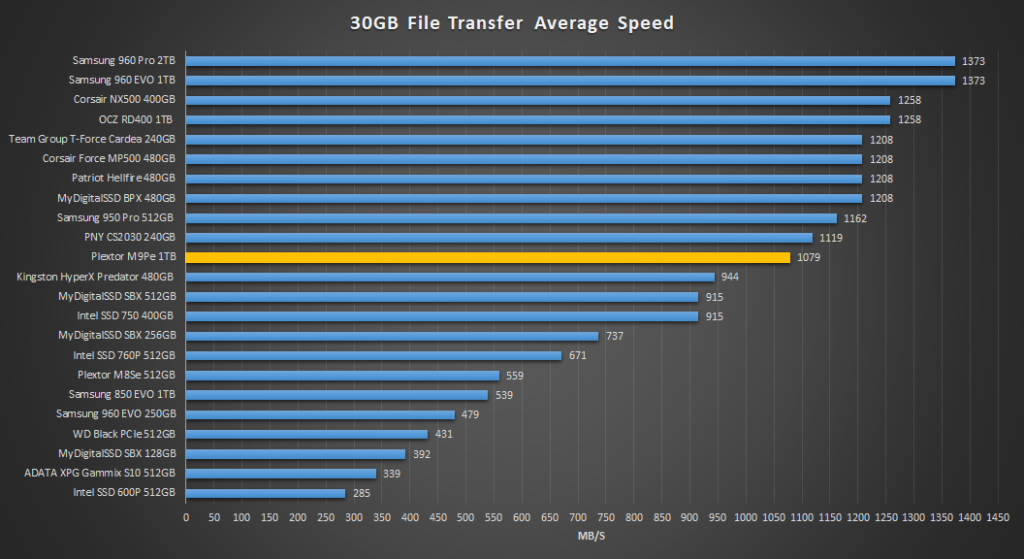REAL WORLD FILE TRANSFER
We also wanted to see how performance was in a real-world use when transferring large files to the SSD. For this test, we are going to simply stress write performance by transferring over a 30GB folder of movies off of a 512GB Samsung 950 Pro to the test SSDs and time how long it takes. Once complete we can calculate the average speed.
The Plextor M9Pe averaged 1,079MB/s during the 30GB write transfer. From this result, we can see that the SLC write cache fills up before 30GB, but still over 1GB/s is good enough for most.
POWER CONSUMPTION
For our power consumption testing, we have the drive connected to the system as a secondary drive. To record the wattage, we are now utilizing a Quarch Technology Programmable Power Module. It allows us to accurately measure power consumption over time and is flexible enough to allow us to test any SSD that comes our way.
Our power analysis may change as time goes on, but for now, we are looking at just a few metrics with the main goal of measuring our results against the manufacturer’s ratings. Because most consumer systems are at idle for about 80% of the time, idle power consumption is an important measure to look at when understanding the efficiency of a drive.
First up we have our results with Active State Power Management disabled. Here the Plextor M9Pe averaged 2.144W at idle. While this is not the highest result we’ve seen yet, it is still quite a lot of power to draw when doing nothing.
In the chart above, with ASPM enabled, we can see that just like the M8Se, the M9Pe’s power consumption does decrease much. At 1.5W, the M9Pe gulps down the power like it just ran a 5K.
POWER EFFICIENCY
Finally, we wanted to post up a graph of the power efficiency of the SSDs in write transfers. We are looking at MB/s per Watt in this graph. The higher the result, the better.
The chart above shows us just how efficient an SSD is in writing data. Here we can see that the M9Pe averages 240MB/s per watt. This is a marked improvement over the M8Se and ranks it as one of the most efficient TLC NAND based NVMe SSD we have tested thus far.
 The SSD Review The Worlds Dedicated SSD Education and Review Resource |
The SSD Review The Worlds Dedicated SSD Education and Review Resource | 

